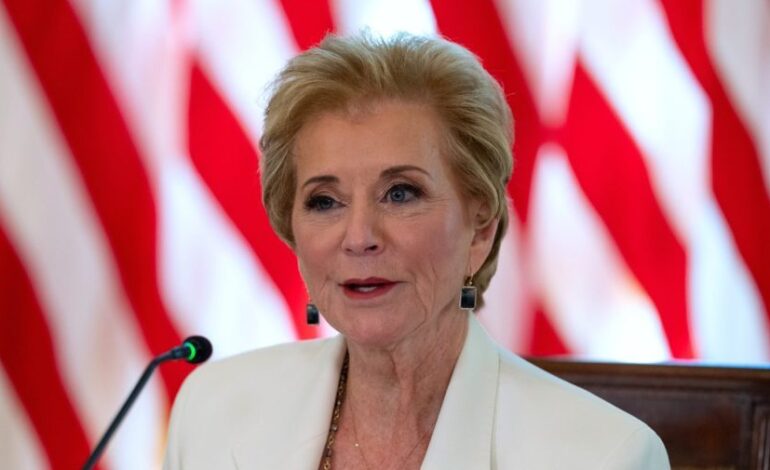McMahon Advocates for Elimination of Education Department Amid Shutdown

Education Secretary Linda McMahon stated on October 11, 2023, that the ongoing federal shutdown serves as evidence for her belief that the U.S. Department of Education should be dismantled. Her comments reflect a broader agenda of the Trump Administration, which has sought to reduce the size of federal agencies.
During a press briefing, McMahon emphasized that the shutdown, which has lasted for two weeks, has compelled federal agencies to reassess their roles and responsibilities. She argued that this situation highlights which federal functions are truly essential for the American populace. “The Democrat government shutdown has forced agencies to evaluate what federal responsibilities are truly critical for the American people,” McMahon stated.
Despite the shutdown, she noted that millions of American students continue to attend school, suggesting that educational needs are being met without the federal government’s involvement. This perspective aligns with her longstanding advocacy for reducing federal oversight in education.
As the shutdown persists, various federal departments have faced operational challenges. The Education Department has been affected, limiting its ability to distribute funds or support programs. McMahon’s comments come amid ongoing debates in Congress regarding the future of federal education policy and funding.
While many educators and advocates argue for the importance of federal support in ensuring equitable access to education, McMahon maintained that local and state governments could better address these needs without federal intervention. She asserted that the federal government’s involvement has led to inefficiencies and unnecessary bureaucracy, which ultimately hampers educational progress.
The response to McMahon’s statements has been mixed. Critics argue that her views could undermine essential educational resources for disadvantaged communities. Supporters, on the other hand, see this as a necessary step towards decentralizing education and empowering local authorities.
The implications of McMahon’s stance extend beyond the current shutdown. If the Department of Education were to be eliminated, it could significantly alter the landscape of education in the United States. Funding for programs such as Title I, which supports low-income schools, and federal student loans could be jeopardized, raising concerns about equitable education access.
As the situation evolves, the future of the Department of Education remains uncertain. The ongoing discussions in Congress will likely play a pivotal role in shaping the direction of federal education policy in the coming months.






